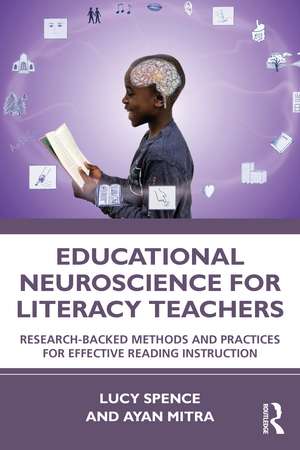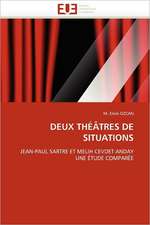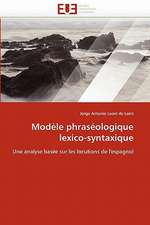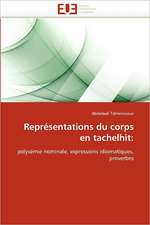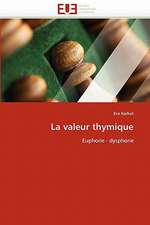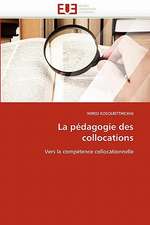Educational Neuroscience for Literacy Teachers: Research-backed Methods and Practices for Effective Reading Instruction
Autor Lucy Spence, Ayan Mitraen Limba Engleză Paperback – 21 apr 2023
Dispelling myths about neuroscience, Spence and Mitra explore how brain-based research informs literacy research in a way that is clear and accessible to pre-service teachers. Chapters address theories of reading, social-emotional learning, phonological processes, embodiment, multilingualism, reading comprehension, and more. Featuring examples of instruction and consistent "Did you know?" and "Food for thought" sections, readers will come away with a greater understanding of the reading brain and how neuroscience can facilitate effective instruction.
Delving into the extent to which neuroscience can underpin reading research, this text is ideal for pre-service teachers, educators, and students in the fields of language arts and literacy, as well as cognitive neuroscience.
| Toate formatele și edițiile | Preț | Express |
|---|---|---|
| Paperback (1) | 310.70 lei 3-5 săpt. | +20.05 lei 6-10 zile |
| Taylor & Francis – 21 apr 2023 | 310.70 lei 3-5 săpt. | +20.05 lei 6-10 zile |
| Hardback (1) | 891.22 lei 6-8 săpt. | |
| Taylor & Francis – 21 apr 2023 | 891.22 lei 6-8 săpt. |
Preț: 310.70 lei
Nou
Puncte Express: 466
Preț estimativ în valută:
59.45€ • 64.78$ • 50.10£
59.45€ • 64.78$ • 50.10£
Carte disponibilă
Livrare economică 02-16 aprilie
Livrare express 18-22 martie pentru 30.04 lei
Preluare comenzi: 021 569.72.76
Specificații
ISBN-13: 9781032183947
ISBN-10: 1032183942
Pagini: 208
Ilustrații: 9 Tables, black and white; 7 Line drawings, black and white; 24 Halftones, black and white; 31 Illustrations, black and white
Dimensiuni: 152 x 229 x 14 mm
Greutate: 0.39 kg
Ediția:1
Editura: Taylor & Francis
Colecția Routledge
Locul publicării:Oxford, United Kingdom
ISBN-10: 1032183942
Pagini: 208
Ilustrații: 9 Tables, black and white; 7 Line drawings, black and white; 24 Halftones, black and white; 31 Illustrations, black and white
Dimensiuni: 152 x 229 x 14 mm
Greutate: 0.39 kg
Ediția:1
Editura: Taylor & Francis
Colecția Routledge
Locul publicării:Oxford, United Kingdom
Public țintă
PostgraduateCuprins
1. Neuroscience and Literacy 2. Literacy Theories 3. Embodied Brain 4. Social and Emotional Brain 5. Multimodal Brain 6. Making Meaning 7. Phonology 8. Languaging 9. Literacy Networks
Recenzii
"An impressive read! This book bridges between research-substantiated explanations of effective literacy instruction and the current neuroscience evidence on reading processes and development. Spence and Mitra have achieved what others have only envisioned, conjoining neurobiology and classroom sociality for a robust explanation of robust literacy engagement."
--George G. Hruby, Collaborative Center for Literacy Development, University of Kentucky, USA
"[T]his book provides an accessible, useable summary of important research findings about how children learn to read, and about how adults can support and teach this process in socially, emotionally, culturally, linguistically and cognitively appropriate ways. From complex neuroscientific data to practical implications for diverse K-12 classroom contexts, Spence and Mitra take educators on a journey into the science and practice of teaching reading to help young people become literate in the full sense of the term."
--From the Foreword by Mary Helen Immordino-Yang, University of Southern California, USA
--George G. Hruby, Collaborative Center for Literacy Development, University of Kentucky, USA
"[T]his book provides an accessible, useable summary of important research findings about how children learn to read, and about how adults can support and teach this process in socially, emotionally, culturally, linguistically and cognitively appropriate ways. From complex neuroscientific data to practical implications for diverse K-12 classroom contexts, Spence and Mitra take educators on a journey into the science and practice of teaching reading to help young people become literate in the full sense of the term."
--From the Foreword by Mary Helen Immordino-Yang, University of Southern California, USA
Notă biografică
Lucy Spence is a Professor of Language and Literacy Education in the Department of Instruction and Teacher Education at the University of South Carolina, USA.
Ayan Mitra is a Postdoctoral Research Associate at the Hoeft Laboratory for Learning Engineering and Neural Systems (BrainLENS Laboratory, University of Connecticut and University of California, San Francisco) with joint appointment at the Brain Imaging Research Center (BIRC) at the University of Connecticut, USA, Department of Psychological Sciences.
Ayan Mitra is a Postdoctoral Research Associate at the Hoeft Laboratory for Learning Engineering and Neural Systems (BrainLENS Laboratory, University of Connecticut and University of California, San Francisco) with joint appointment at the Brain Imaging Research Center (BIRC) at the University of Connecticut, USA, Department of Psychological Sciences.
Descriere
Bridging the world of reading instruction and applied cognitive neuroscience, this book presents research-backed reading instructional methods and explains how they can be understood through the lens of brain processes.
